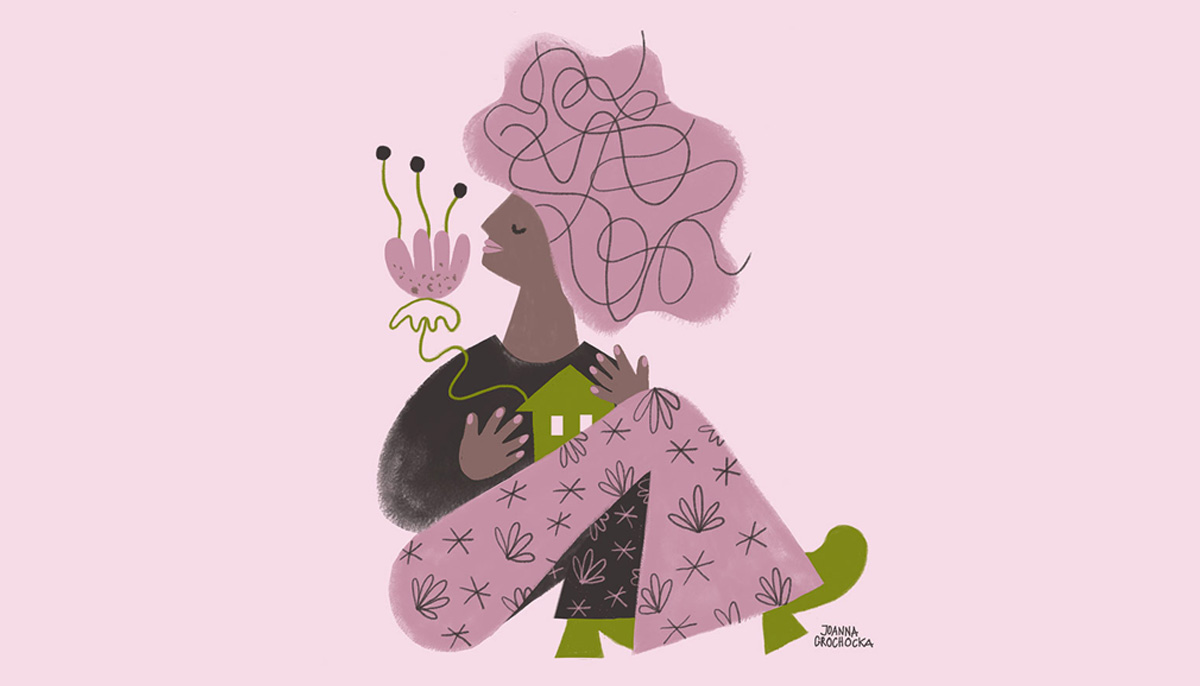But the stone that the builder refuse
—Bob Marley, “Natty Dread Rides Again”
Shall be the head cornerstone,
And no matter what game they play,
Eh, we got something they could never take away;
We got something they could never take away
You already are what you want to become.
—Master Lin Chi
All of us go through times of transition, challenges, and difficulties. We may have faced or will face times of loss, confusion, or heartbreak, when we realize we cannot control the way our life is unfolding, whether in our personal lives or in the world around us. With mindfulness, we can learn to move through these intense, challenging times in ways that don’t add to the suffering and difficulty that are already there. We can even learn to open our hearts to the richness and wisdom these times of immense disruption can bring us.
When we touch this experience of coming home, it is like we have finally arrived home after a long journey.
A key step that can help us begin to settle ourselves when we are profoundly unsettled is to come home, to ourselves, in this moment, whatever is happening. This is one way of speaking about mindfulness, or being present: coming home to ourselves. When we bring our mind back to our body we come home. We could consider this state as our true home. This home inside of us is a home no one can take away from us, and it cannot be damaged or destroyed. No matter what happens around us, if we can find this home inside of us, we are always safe.
When we touch this experience of coming home, it is like we have finally arrived home after a long journey. We experience a sense of peace and even freedom, no matter how confining the outer circumstances. Coming home to ourselves feels like belonging; it is a state that holds us and enables us to hold others.
This is so important because we can live our whole lives estranged from this home within ourselves.
My mentor Thich Nhat Hanh, whom his students call Thay, or “teacher” in Vietnamese, sums up his whole lifetime of teachings with one sentence: “I have arrived, I am home.” For him, the principal aim of mindfulness practice is to experience that we have already arrived, here and now. There is nowhere we need to run to or be, other than right here in the present moment. And we experience ourselves at home, no longer looking for some refuge outside of us, in some other place or time, when we touch the truth that all that we long for and search after is here inside of us.
We can experience encountering this spacious and free place of our true home in unexpected moments as we spend more time tuning in to what is happening inside us and around us. One morning, when I was a novice nun, in slow walking after our early morning sitting meditation, I was very present and able to be aware of nearly every step. I began by being aware that as I was stepping with my left foot, I was at the same time stepping with my right, because my left foot could not be without my right. And vice versa. Then I saw that my arms were also contained in my feet, so I was also stepping with my arms. Then my hands, my stomach, brain, sense organs, heart, lungs. I was 100 percent with my body. So I was tasting the earth with my feet, listening to it, looking at it, feeling it, knowing it, smelling it with my feet. My heart was loving it, my lungs breathing it in and out.
Then I turned my attention more toward the Earth and knew I was also walking on cool streams of water flowing under me, and hot, fiery liquid deep below, in the center of the Earth. I imagined walking on the feet of those directly opposite us on the other side of the planet. The soles of my feet touched the soles of a little baby taking tentative steps, and a pregnant woman, and an old grandpa. My feet touched the feet of a lonely, isolated person, and someone carried away by hatred and anger. I was also walking on the feet of someone who was right then doing walking meditation and enjoying the present moment. I was one with those walking the Earth whose hearts were filled with love and peace.
We can’t find what we need to meet tomorrow or a month from now because we can’t control or exactly know the future, but we will find what we need for right now.
If we’re not aware of what is happening in the moment because we are caught up in our thoughts or reveries, or in the grip of worry or other strong emotions, it’s like we have left our house. If we stay away for a long time, dust accumulates and unwanted visitors may take up residence in our home. Things like stress and tension accumulate in our bodies and minds, and over time, if we don’t tend to them, they can lead to physical or psychological illness.
But the beauty of awareness is that we can always return home to ourselves. Our home is always there, waiting for us to come back. There are numerous ways we can go home to ourselves: by being aware of our breath, by being aware of body sensations or bodily movements, and by connecting with the reality around us, like the sounds in our environment. And when we come back home in these ways, we are able to take stock and survey the territory of our being, seeing clearly what parts of our inner landscape need more support, where we need to pay more attention.
It is especially tempting in times of transition and challenge to abandon our homes, to leave our territory, in search of answers, perhaps by worrying about what will happen in the future. This is precisely the moment when we need to return to the present moment, feel our bodies, and take good care of ourselves now. Because the future is made of this moment. If we take good care of this moment, even if it is very difficult, we are taking good care of the future.
It may also be hard to come home if we sense that unresolved pain has accumulated and we don’t want to face it. We may get into the habit of avoiding our home completely. We don’t want to be with those raw, unprocessed parts of our experience that are painful and may be quite scary.
If this is our situation, it is important to have compassion for ourselves for not wanting to return home to face these places inside of us. And yet the only way we can heal them, move through them, and make our home a more cozy place is to turn toward them. As the teaching goes: “The only way out is in.” Or through.
How do we do this? One of the ways is to stay with what is here and now, on the platform of the train station so to speak, watching the trains of our thoughts and plans come and go, rather than jumping on a thought-train that is heading into the future, or another thought-train that takes us into the past.
Those plans, worries, and anxieties will surely arise in our mind, but we can learn to notice them and take good care of them rather than feed them and get pulled away by them. Bringing our attention to our breath or to the sensations in our body helps us to stay on the platform of the now. The past and future are not the place where we can come home to ourselves and resource ourselves with the elements we need to move through our difficulties. We can only come home to ourselves in the present moment, in the here and now.
We can spend lots of our time and energy trying to predict or control what the future will bring. This doesn’t usually serve us. In truth, we don’t need to know what the future will bring. We just need to be right in this moment, and if we touch it deeply, mind and body united, we will find we have all that we need to meet the present. We can’t find what we need to meet tomorrow or a month from now because we can’t control or exactly know the future, but we will find what we need for right now.
Meditation: I Am Home
Let’s practice connecting with our present moment experience. Sit, lie, or stand in a comfortable position that supports you to be alert and also relaxed. You may like to set a timer with your phone or an alarm clock for ten minutes if you wish to be aware of time. Most of these meditations are short, and you can practice them throughout your day.
Begin by feeling the contact between your body and whatever surface is supporting you. Let yourself rest in this place, returning to this moment, here and now. Invite whatever parts of yourself that may still be dispersed to come back and settle.
Set the intention to come home to yourself, to be present for yourself. You deserve this care, you are precious and unique, in all the world there is no one else who brings the precise combination of gifts that you bring. Allow yourself to arrive here as fully as you can. And welcome the many parts of yourself home.
You may already begin to feel yourself settling into the home inside of you: the place of your strength, wisdom, and clarity. A place that is trustworthy and capable of providing you with refuge in the storm. But if not, continue to stay with awareness of your body sensations, sounds, or breathing. A sense of coming home will develop over time. It may not happen the first time you meditate, but as you become more attuned to yourself, you will find you have been at home all along.
If it’s helpful you can repeat inwardly, I have arrived. I am home.
If it supports you, you can connect the words with your breathing, arrived with the in-breath, home with the out-breath.
Arrived in the present moment, home in myself, just as I am.
Arrived, arrived,
at home, I am at home,
dwelling in the here and dwelling in the now.
Solid as a mountain, free as a white cloud,
the door to no birth and no death is open,
free and unshakeable.
—Plum Village song
This teaching is excerpted from Karia Jewel Lingo’s book, We Were Made for These Times, published by Parallax Press.

